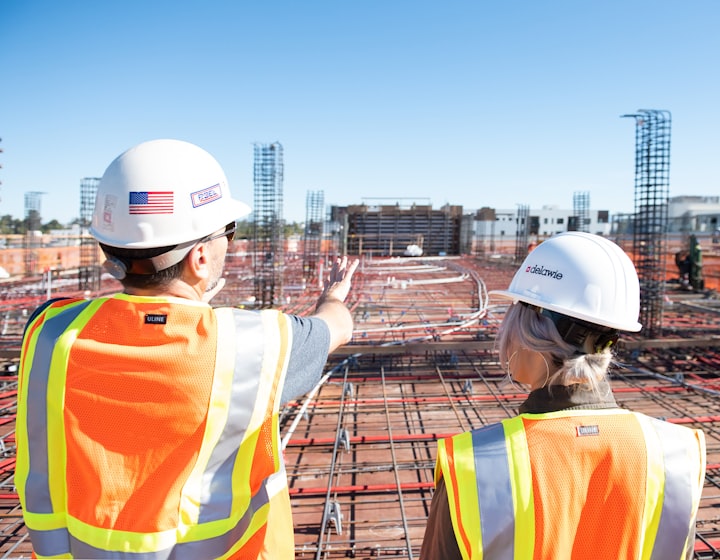Common Challenges in Implementing Drug Screening Programs in Construction Companies
Navigating Obstacles to Effective Drug Screening in the Construction Industry

Introduction
Drug abuse is a pressing issue in the construction industry, as it poses significant risks to both employees and the overall project safety. As construction companies strive to create a drug-free workplace, implementing effective drug screening programs becomes essential. However, several challenges stand in the way, hindering the successful integration of these programs.
Understanding the Importance of Drug Screening in Construction Companies
The construction industry is inherently hazardous, with workers exposed to various risks daily. Impairment due to drug use can lead to accidents, injuries, and even fatalities. Drug screening programs act as a preventive measure, ensuring that employees are fit for duty and capable of performing their tasks safely.
Legal and Regulatory Compliance
One of the primary challenges in implementing drug screening programs is navigating the complex landscape of state and federal laws. Construction companies must adhere to regulations while also balancing employees' privacy rights. Striking this balance can be tricky, but it is crucial to avoid legal complications.
Financial Constraints
For many construction companies, financial constraints pose a significant obstacle to establishing drug screening programs. Drug testing, especially in large workforces, can be expensive. Allocating resources appropriately to cover these costs without compromising other essential aspects of the business is a delicate task.
Employee Resistance and Privacy Concerns
Some employees may be apprehensive about drug screening due to privacy concerns or fear of unfair treatment. Addressing these concerns and building trust among the workforce is vital for the successful implementation of drug screening initiatives.
Choosing the Right Drug Screening Method
Selecting the most suitable drug screening method is essential for accurate results. Companies must weigh the pros and cons of different testing techniques, such as urine testing, hair testing, or oral fluid testing. Understanding the detection windows of each method helps in making informed decisions.
Interpreting Test Results
Interpreting drug test results can be complex, and companies must be aware of the possibility of false positives or false negatives. Confirmatory testing and seeking expert analysis are essential steps in avoiding potential misinterpretations.
Managing Drug-Related Issues
In the event of a positive drug test result, construction companies need to have a clear plan in place. Handling such situations with sensitivity and providing appropriate support and rehabilitation options can make a significant difference.
High Employee Turnover
The construction industry often experiences high turnover rates, which can pose a challenge for consistent drug screening. Integrating drug testing into the onboarding process and focusing on retention strategies can help overcome this hurdle.
Educating Employees and Supervisors
Raising awareness about substance abuse among employees and supervisors is critical. Training supervisors to identify signs of impairment and intervene early can prevent accidents and promote a healthier work environment.
Dealing with Legal Implications
Companies must be cautious about potential discrimination claims or litigation risks related to drug screening policies. Maintaining consistent and well-documented procedures is essential in mitigating legal issues.
Addressing Substance Abuse Stigma
Substance abuse can carry a significant social stigma, and overcoming prejudices and misconceptions is crucial in fostering a supportive environment. Encouraging open dialogue and understanding can help employees feel more comfortable seeking help if needed.
Effective Communication
Communication is key when implementing drug screening programs. Clearly explaining the purpose and benefits of such initiatives to the workforce can foster acceptance and participation.
Monitoring Program Effectiveness
Regularly collecting and analyzing data on the drug screening program's effectiveness is essential. This allows companies to identify areas of improvement and make necessary adjustments to enhance the program's impact.
Incorporating Drug Screening into Company Culture
Promoting a substance-free company culture involves more than just implementing drug screening policies. It requires actively reinforcing positive behaviors and recognizing employees who contribute to a safe and drug-free workplace.
Building a Supportive Network
Collaborating with community resources and partnering with substance abuse professionals can strengthen a construction company's approach to drug screening. Creating a network of support for employees struggling with substance abuse issues is vital.
Conclusion
Implementing drug screening programs in construction companies is a multifaceted task that involves overcoming several challenges. By addressing legal, financial, and communication-related obstacles, construction companies can create safer work environments and promote the well-being of their employees. Embracing drug screening as an integral part of company culture fosters a supportive atmosphere that benefits both employees and the overall success of the business.
FAQs
Are drug screening programs mandatory for construction companies?
Drug screening requirements vary by jurisdiction and project specifications. However, implementing drug screening programs is highly recommended to ensure workplace safety.
What are the consequences of a positive drug test result?
The consequences may vary depending on company policies and local regulations. They can range from mandatory counseling and rehabilitation to termination of employment.
How often should drug screening be conducted?
The frequency of drug screening may vary depending on the company's policies, project requirements, and legal obligations. Regular random testing is often recommended to deter substance abuse.
Can employees refuse to undergo drug testing?
Refusal to undergo drug testing may lead to disciplinary action, including potential termination, depending on the company's policies.
Does drug screening only target illegal drugs?
Drug screening typically includes testing for both illegal and some prescription drugs that may impair a person's ability to perform their job safely.






Comments
There are no comments for this story
Be the first to respond and start the conversation.